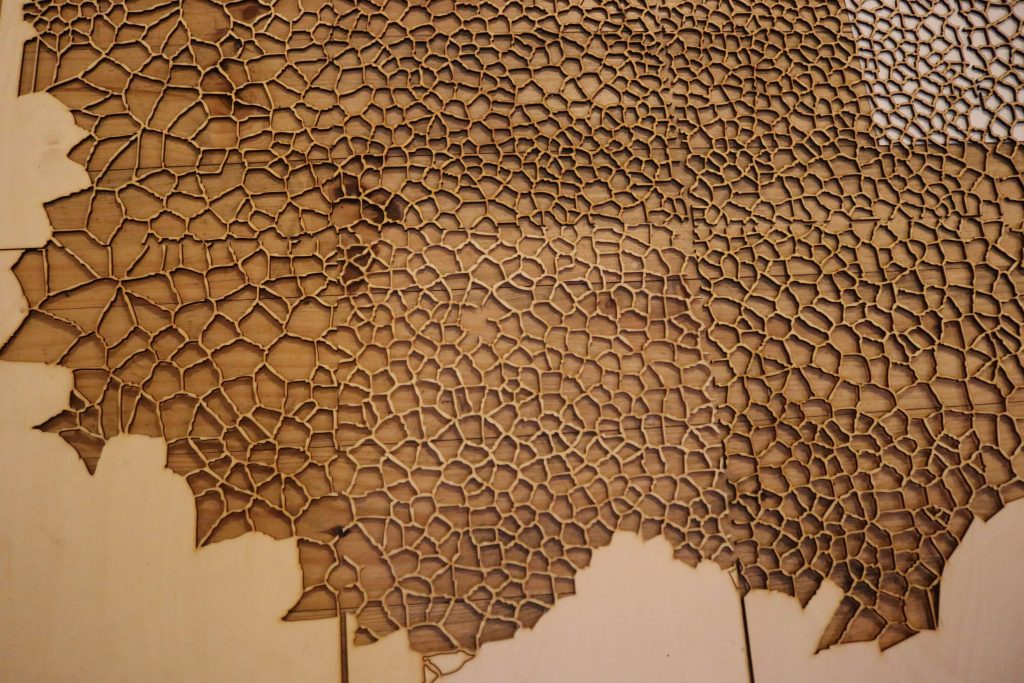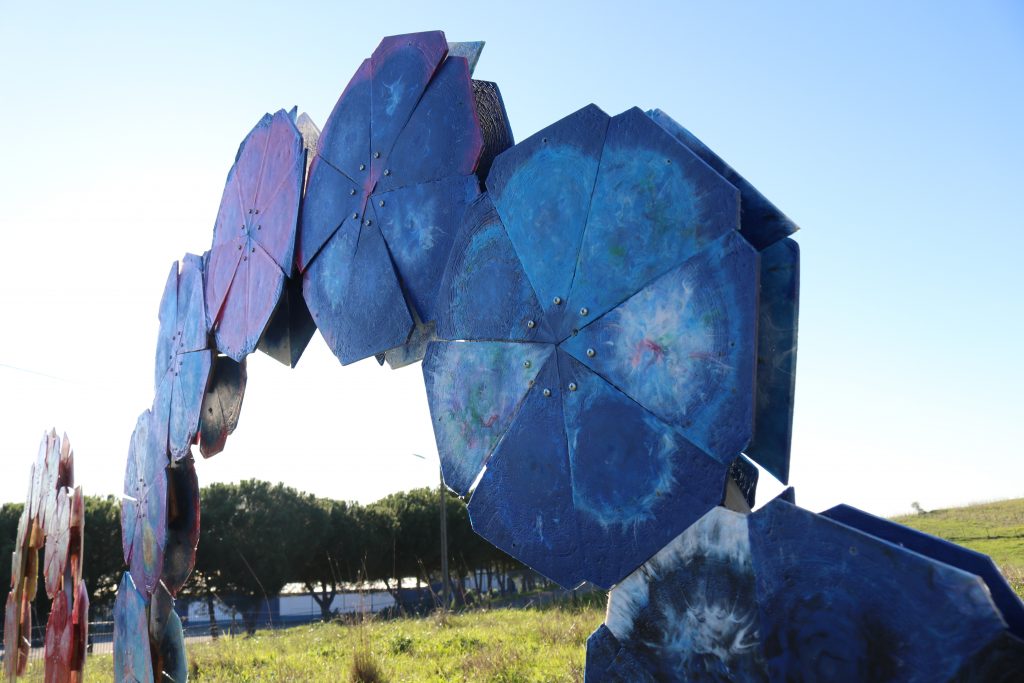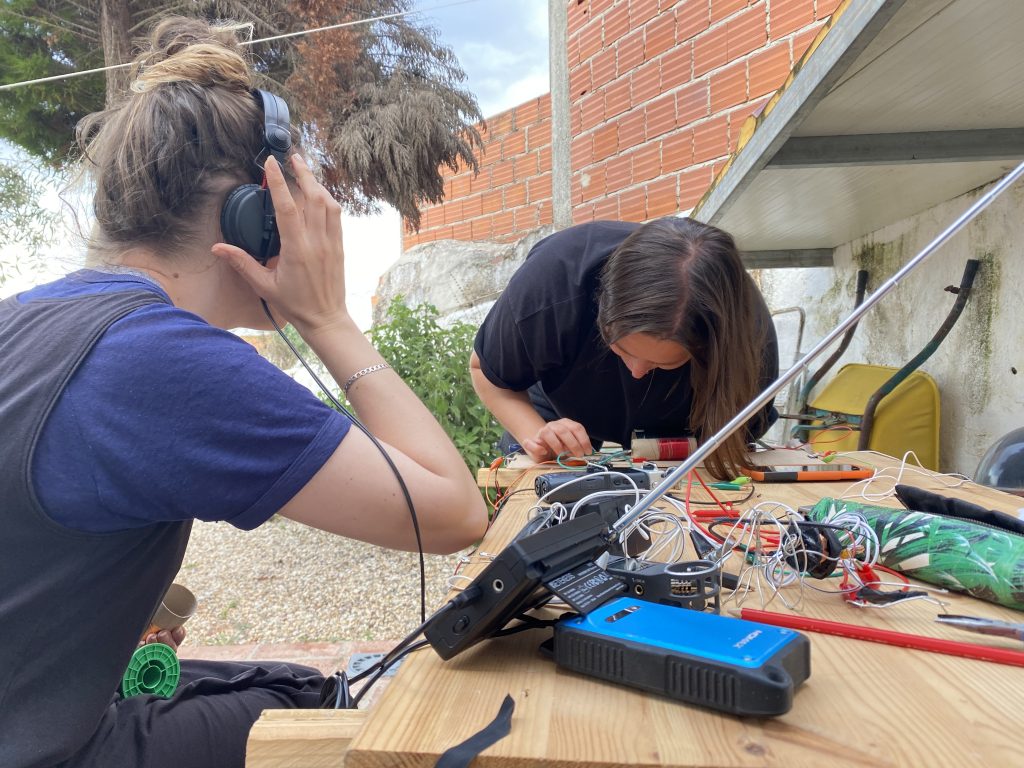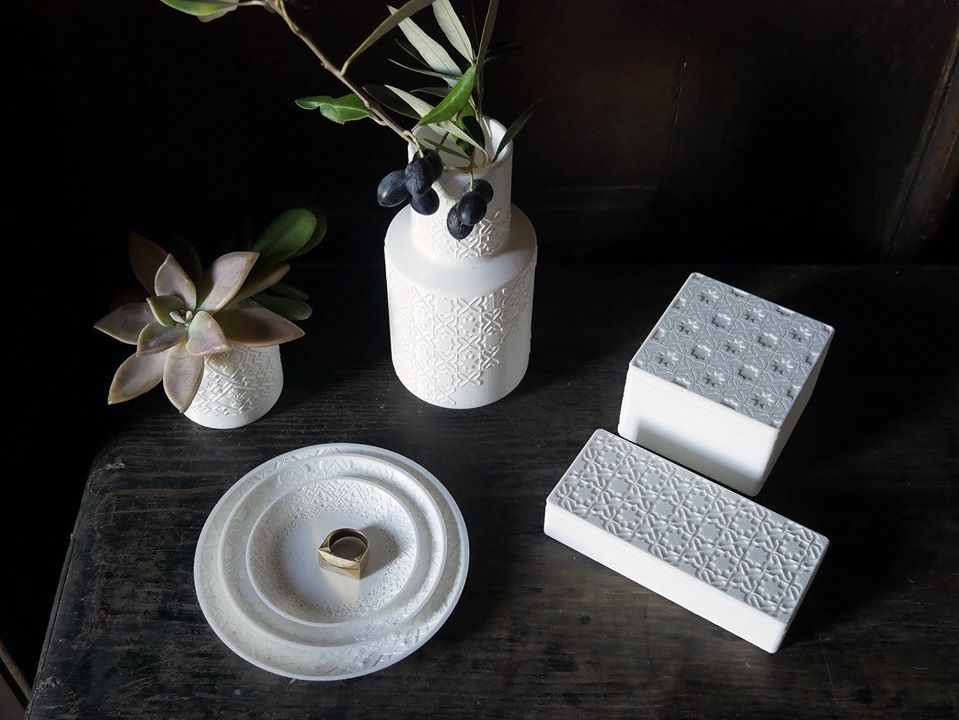MakersXchange: Buinho, an interview with Carlos Alcobia
Published 29 November 2021 by la rédaction
For MakersXchange (MAX), a study on the mobility of makers, the European Creative Hubs Network is conducting a series of in-depth interviews aiming to explore the needs of makers in relation to mobility programmes as well as highlight good practices for social inclusion and skills development. Interview with Carlos Alcobia from Buinho (PT).
Buinho is a FabLab and Creative Residency in Alentejo, Portugal. It’s a place where artists, makers, researchers, and other creatives can work on their projects in a unique rural environment. Carlos Alcobia, the General Manager of Buinho, met with ECHN and discussed about makers’ mobility.
MakersXchange: Can you briefly describe your organization? Is your organisation addressed to makers, do you host makers activities?
Carlos Alcobia: Buinho is a non-profit association which was founded in December of 2015. Two things that distinguished us were that we decided to open a FabLab in a rural area and facilitate a residency programme, which was unique at the time. As an organisation we feel more engaged with the creative sector and we strongly believe in the impact that we can achieve in the social life of people living in remote regions through our activities.
In the past I had helped to set up a FabLab in Lisbon and from the beginning I wanted to use FabLabs to connect different territories. I think that it is possible to share projects and exchange knowledge no matter how far away you are from each other by the use of digital fabrication. This is what we started to develop in Buinho too and in the last years we have expanded our activities in the educational sector and we have grown internationally.
Believe it or not, that expansion was mainly due because of the Erasmus programme and because we managed to connect with other FabLabs, makerspaces, schools that have makerspaces in their facilities and NGOs. It was equally important our experience of operating a FabLab in a very particular region, Messejana, which is a rural village with less than 800 people and from where the closest university is around 100 kilometers away. We don’t have a traditional maker community, it’s a bit weird even saying that. I remember some years ago, even the term makers’ movement was new. Only recently we have gained a better view of what a maker is. As you can imagine, there was no such thing in a place like Messejana and from the very beginning we faced the challenge of constructing a community around us and engaging with the locals too.

Sometimes people would like to visit Buinho and experience the contrast of having access to all the labs and high-tech equipment to develop their project, while at the same time knowing the locals by name, having kids playing right outside their door in the night and similar things that you don’t usually see in bigger cities. There is this sense of being part of a community, which is not necessarily a maker community, that brings a lot to our project.
MakersXchange: Have you participated in any mobility programs for makers in the past? Can you elaborate on your experience(s)?
Carlos Alcobia: Because our FabLab is located in a remote area, we needed to create connections with the rest of the community. In order to do that, we started to organise this mobility programme for makers, which initially started as an Artist In Residency (AIR) programme. It would be weird to say, even in 2016 that we offered a Makers In Residency programme. Makers still had this sense of not belonging somewhere, since the platforms and organisations hosting similar residency programmes mainly addressed artists at the time.
We settled to call it an AIR programme, firstly because of our background on the creative sector and secondly, because something like that already existed as a format. Through this programme we started connecting with the makers that would participate. It was really interesting trying to find ways of developing mobility programmes for makers by introducing them to other sectors as well.
Then we met Alex Rousselet, from France, who visited us with his van and introduced us to Vulca, a completely bottom-up network of makers. Alex was also surprised with our case because he comes from a small rural village, so he related with our experience and drawing inspiration from ours and other examples he visited, he decided to design his own residency programme. Also, when Alex visited us, we understood that things started to change and we saw it as a sign that we weren’t alone after all.
Part of our activities also includes Erasmus projects for youth exchanges aimed towards supporting the local youth community, who has very limited opportunities compared let’s say to their peers in Lisbon. Young people living here need to broaden their horizons. From our experience in Lisbon, the majority of young people, when they graduate from high school, they want to continue to higher education because the market is really competitive. Here the opposite happens. The majority of young people don’t want to continue either because they don’t find the need to do so or because they are not very ambitious. This results in low qualified jobs and people migrating to larger cities, so this region becomes poorer and depopulated.
Due to the nature of our FabLab, our youth exchanges are also a bit different. They mostly aim towards introducing 3D printing, Precious Plastic or similar projects that are popular among maker communities, in rural areas. This is why we started to find similar organisations to partner with and eventually, we created a little European family. This summer we hosted an absurd number of projects, which were previously postponed because of Covid. During this period we coordinated four youth exchanges, hosting people from other FabLabs that we are partners with, which adds to an Erasmus strategic partnership (KA2) coordinated by Workshops of Culture in Lublin also dedicated to the role of European FabLabs for the Adult Education Sector.

Also, when we participated in the Learning Labs programme, we met the guys from TransfoLAB BCN in Barcelona who do an amazing work, working with waste materials and we invited them to our space to do an application. These encounters are also forms of makers’ mobility. Basically, the organisations connect with each other and they create bridges who enable people to travel from one place to another.
MakersXchange: Could you share with us some more information about the project Viseiras that you presented through the Ambassadors of Change Platform?
Carlos Alcobia: The project Viseiras was a totally different experience, this is why we wanted to share it through the Ambassadors of Change Platform. It was a huge coincidence because at the time that the open call was running, we were in the middle of the project. During the project we flew to Cape Verde, an island country in the west coast of Africa and provided 3D printing workshops to the locals in order to help them develop resilient strategies for fighting Covid. We found out that there are a lot of potential makers in this place who unfortunately don’t have many opportunities to further develop their skills. Of course, when we visited Cape Verde, we brought with us all of our experiences from Portugal and from across Europe and we were really happy to share them with the locals. In a way, through these activities, creative hubs and makerspaces become ambassadors of Europe. Makers’ mobility is like this big melting pot, which is really fascinating coming to think about it.
Our future plan for Cape Verde is to move some of the 3D printers that they have in a building that is like a science lab to the local schools and create common educational challenges in order to connect the student communities from Cape Verde and Portugal. This will result in the development of collaborative projects that may start in Cape Verde and finish here or vice versa, creating digital bridges between the school communities. We will also try to include a form of certification in these courses in order to help students distinguish themselves so that they can be more encouraged to follow their dreams in the future.
Creative Hubs, Ambassadors of Change Programme: Viseiras by Buinho
From your experience, what would be the challenges in mobility for makers?
Carlos Alcobia: I think that the ecosystem is not really mature. What I mean by this is that there is a huge difference in the access to opportunities from one country to another, or even within the same country. For example, there can be a lot of things going on in big cities, while in other places the activities might be very limited. Also, when those activities exist, there are not many platforms available to support them.
I think that what you are doing with the MAX project and what Vulca is accomplishing in makers’ mobility since 2013 is a first step towards facing these issues, because we need specific instruments to support makers’ mobility, since there are none. There is a huge gap between what is being offered and what we actually need and I think with a little support, makers can have a great impact to this idea of shaping a digital, more connected, more inclusive and greener Europe.
MakersXchange: From your experience, would you like to add any good practices that have identified related to makers mobility?
Carlos Alcobia: Just like I mentioned, Vulca does an amazing work and it’s really surprising to see just how they have developed in these years. There are also some other initiatives that I find interesting but most of them are scattered. They are either part of a bigger project or other informal activities and so on. Also, in some cases mobility might take place locally or within the same countries.
There are definitely good examples but they are not sustained in time and therefore difficult to highlight. We would like to have more organizations and projects that act as anchor points for other regional/national initiatives and are sustainable, not just operating for two or three years due to a project funding. There should be more pillars supporting makers’ mobility and I actually think that it is just a matter of time for this to happen.
MakersXchange: How do mobility experiences bring value to your organization and community?
Carlos Alcobia: What I always say to our team members and to the people that we are close to is that even if Buinho becomes a huge company and creates a big brand, we will never stop our residency programme. I can see a big social impact when people come from abroad and try to develop their projects in our space. When I say this, I don’t include only the makers. Residents can be writers for example, or visual artists, or people that want to be embedded somehow in the artist community.
In addition, what these people bring to the local community is really important. They bring this desire to get to know them better and I would say that this didn’t work the same way, when I was in Lisbon. In a rural setting like Messejana, the elderly feel abandoned because their relatives have moved to bigger cities. When somebody does a project and they want to hear their stories, they always want to participate and they almost get absorbed by it.
Another example that comes to mind is that of a collective of female makers, who will visit us soon in order to do a workshop and discuss issues related to gender equality. People coming from the cities are more aware of these issues and they can have a positive impact on remote regions, which might be a bit more conservative. In that sense mobility acts as an inspiration. It sparks change in a very powerful way.

Kids are also an interesting case. There are residents who visit us and develop workshops for the local kids. During these activities, the local kids meet different people, who speak different languages and interact with them. This is so important, especially for kids who are growing up in a rural area, since they are able to learn new things. In the context of a rural area, such activities that involve the mobility of makers or artists or even people who wish to share knowledge and experiences with the locals can have a significant impact on different age groups. This is why mobility is not always about the economic value that it generates. It’s really about the social impact that it has in these communities.
MakersXchange: What would be a dream mobility scheme for makers? Would you give priority to travel support, social encounters, technical access or network building?
Carlos Alcobia: I think that in terms of funding, just providing support to cover travelling and accommodation is not enough. Of course, it can help towards democratizing the process, because this way mobility programmes would get more open and inclusive. However, we should also provide conditions to help to create a sustainable and more professional ecosystem, with less precariousness or at the very least that would encourage the participants to travel from one place to another in order to learn new things.
Mobility programmes for makers should be a bit more professional and the grants should also help them develop their work. If there was such a programme, the organisers should target the correct audience, just like offering a job. They should explain the roles, what are they trying to accomplish, what are the outputs and so on. Additionally, it should focus more on the experience, on connecting and meeting people, just like the Erasmus programme, which is much needed for the maker community and for Europe in general.

MakersXchange: What is mobility in times of world pandemics? Should we still invest in that? And, considering our travel restrictions, how can we continue to grow and reinforce networks, if we cannot meet one another? And why is that important (or not)?
Carlos Alcobia: The situation is still difficult. During the past year and a half, we didn’t launch any open calls for the residency programme, simply because the people who were planning to come postponed their trip due to travel restrictions, visa issues and quarantines.
Our project has also got a social aspect. There are some activities that we do and we don’t advertise. For example, we do some activities with the elderly such as: workshops, in which we try to connect the residents with them and vice versa. Unfortunately, these had to stop because of Covid. Another voluntary project that we did was that we opened a makerspace in the only school that there is in Messejana and of course that was also one of the activities that had to stop.
The situation was really complicated and we didn’t really try to engage with digital mobility because for us it’s all about visiting the place (Messejana). However, we were fortunate enough to be part of some networks, like ECHN so we managed to share practices, even online. For example, we participated in the Learning Labs and the Ambassadors of Change programme.
When things eventually get better it will be easier to visit other spaces or host residents. A lot of people still don’t know about Buinho, so it’s always good to prepare for what comes afterwards because eventually things will get back to normal.
Now that I’m thinking about it, it would also be interesting to have opportunities as those created by the ECHN online brunch which doesn’t need to be funded, but it offers still the possibility for the different hubs to remain connected and sharing practices and ideas with each other. Even if we don’t have physical mobility, it’s always good to stay connected, understand what other people are doing and also think about the future. Everybody needs hope, so thinking about a better future makes you feel better and it’s also productive because it makes you better prepared for what comes next.
MakersXchange is a Pilot policy project co-funded by the European Union. MAX project is implemented by the European Creative Hubs Network, Fab Lab Barcelona, UPTEC and Makery.
Find out more about Buinho
